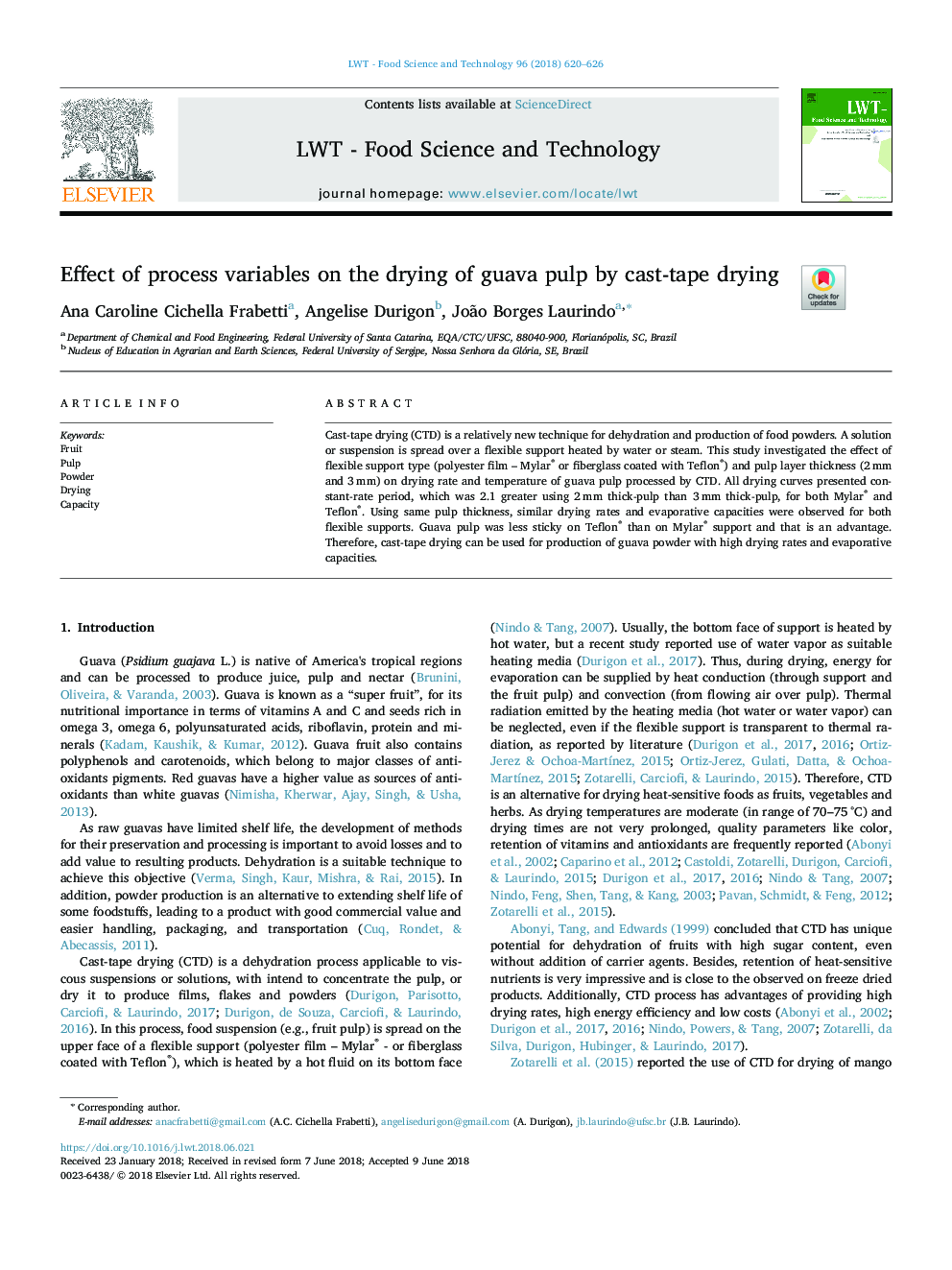| Article ID | Journal | Published Year | Pages | File Type |
|---|---|---|---|---|
| 8890711 | LWT - Food Science and Technology | 2018 | 7 Pages |
Abstract
Cast-tape drying (CTD) is a relatively new technique for dehydration and production of food powders. A solution or suspension is spread over a flexible support heated by water or steam. This study investigated the effect of flexible support type (polyester film - Mylar® or fiberglass coated with Teflon®) and pulp layer thickness (2â¯mm and 3â¯mm) on drying rate and temperature of guava pulp processed by CTD. All drying curves presented constant-rate period, which was 2.1 greater using 2â¯mm thick-pulp than 3â¯mm thick-pulp, for both Mylar® and Teflon®. Using same pulp thickness, similar drying rates and evaporative capacities were observed for both flexible supports. Guava pulp was less sticky on Teflon® than on Mylar® support and that is an advantage. Therefore, cast-tape drying can be used for production of guava powder with high drying rates and evaporative capacities.
Related Topics
Life Sciences
Agricultural and Biological Sciences
Food Science
Authors
Ana Caroline Cichella Frabetti, Angelise Durigon, João Borges Laurindo,
